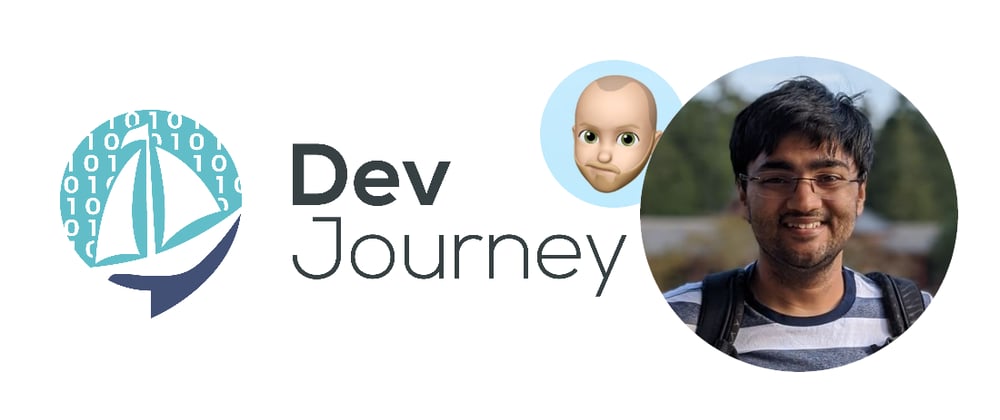This week, I published Roopak Venkatakrishnan's #DevJourney story on my eponym Podcast: Software developer's Journey. Among many other things, here are my main personal takeaways:
- Roopak's story started in the early days of DOS and Windows, tinkering with the system settings and solving small problems.
- Roopak was one of the finalists of an Infosys boot camp when he was in grade 10. It allowed him to stay 2 months longer at the company, doing some kind of internship, and dipping his toes into "real-life development". This added a lot of fuel to his inner-fire.
- Roopak was able to create small programs solving small problems very early on. This allowed him to learn tons and remain motivated all through it. He created a business on the side during his studies by searching for problems to solve for small companies nearby. For example, he upgraded companies to Google G-Suite products, saving them a lot of money in the process. But even better than getting money, he praised the exposure to different systems, structures, people, and organizations that he got through these activities.
- Out of University and attracted by the free food and his fanboy-ism, Roopak applied for an internship at Google. His strategy was to search for people who could refer him "from the inside". It might have helped to get into the interview process in the first place. Then he scheduled the interview one month in advance, prepped full time for it, and got in!
- After Google, Roopak worked at Twitter. The thing he remembers the most is the people. Staying long hours, observing what they are working on, exploring with them, and learning new things. He started in the billing team but soon wanted to move toward more customer-facing features. That's when he did his "Side Step Move"© for the first time. He found a team he really wanted to work with and talked directly to the manager of that team. Toward the end of his stay at Twitter, Roopak started getting into Android. So logically...
- ... he re-applied at Google. Using his "patented career algorithm" again. He picked the company (Google), found a job there (Core Android Team), and made his mark. After a few months, he identified a better team & domain and moved laterally toward a better fitting position. I'm really fascinated by this way of behaving. This seems to be very intentional, logical, and successful.
- After Google, Roopak gradually went toward startups (Spoke and then Bolt). He first went to work at Spoke, to follow people he had already worked with. What he discovered at those startups was the ability to really collaborate directly with customers on really solving their problems. In hindsight, his move toward developer productivity while working at Twitter might have been exactly because he couldn't talk to the customers otherwise.
Advice:
- Don't accept an answer blindly
Thanks, Roopak for sharing your story with us!
You can find the full episode and the show notes on devjourney.info or directly here on DEV
Did you listen to his story?
- What did you learn?
- What are your personal takeaways?
- What did you find particularly interesting?








Oldest comments (0)